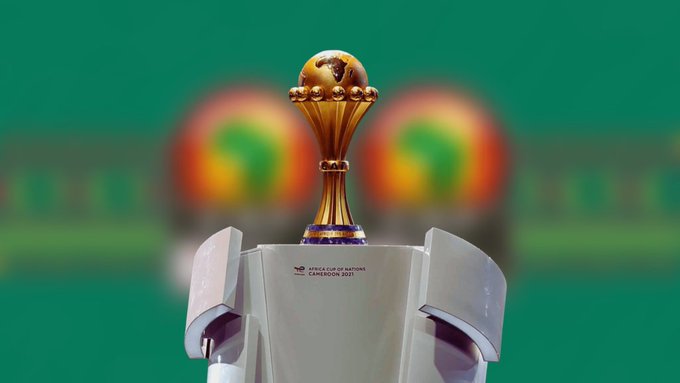Every nation in the world has a story with two sides, the positive and the negative.
For some nations, the positive part of their story is what is brought to the fore while for others, the negative dominates.
In the case of Somalia, one of Africa’s most culturally homogeneous countries, it has mostly been a dominance of the negative leaving out the positive.
This piece will be deviating from that norm to explore the strength, capabilities, and richness of the East African country.
One of the country’s success stories that captivate the interest of many is its Mobile money success story of how Somalia’s civil war laid the foundation for a cashless society, that put the country on the verge of becoming the world’s first truly cashless economy.
It all started when in 1991, Mohamed Siad Barre’s regime collapsed and the country’s condition began to quickly deteriorate, a protracted war followed the collapse of the regime and it made international financial institutions abandon Somalia to its fate.
Between 1990 and 2013, Somalia received no foreign direct investment, and the monetary system broke down with the collapse of the Somali Central Bank.
It was in the midst of this violence, corruption, and economic turmoil that a business ecosystem like no other emerged in Somalia.
Mobile money emerged leading to the growth of formal and informal marketplaces which started to flourish as Somalis began doing business with one another.
This went on over time, and Somalia became recognized globally as a cashless economy.
Today, in its Urban centres, mobile money penetration is over 80%. Even in rural areas, it has become the currency of choice, with a penetration rate of 55 per cent.
According to a report by the World Bank published in 2018, almost three-quarters of the Somali population aged 16 and older use mobile money.
When we compare this to Nigeria, the continent’s largest economy, only 39.7% of adults had mobile money accounts in 2018.
It’s unfortunate that the country only saw this progress after the breakdown of the traditional financial system, the deterioration of its banking infrastructure, and the loss of faith in the Somali shilling.
But regardless of what provoked this highly unusual revolution, it has, against all odds, brought monetary stability to one of the world’s most notoriously war-torn nations, and presently the country is doing well in terms of its cashless policies.
Unlike most countries in Africa, Somalis tend to keep their money in their mobile wallets rather than cash it out.
Even as the civil war repercussions persist, the advent of mobile money has had many positive impacts on Somalia’s citizens and its economy. It has helped in decreasing the distance between communities and this has facilitated commercial activities in Somalia as well as contributed significantly to the country’s economic development.
In a country that has been plagued by war, terror, famine and sectarian violence, the importance of mobile money cannot be overstated. Domestic telecommunications firms have been one of the principal agents of Somalia’s economic recovery, increasing security and political stabilisation.
This was reflected in the country’s Gross Domestic Product, GDP which grew by an estimated 2.9% in 2019 and by 3.2% and 3.5% in 2020 and 2021 respectively.
It may sound strange to Africans and non-Africans alike, but there is much to be learned from Somalia’s cashless policy. One is that nothing is impossible, many countries across Africa today are raising concerns about the non-possibility of having the vulnerable, the rural dwellers and the elders, in the cashless transition plans, but this has been tried and implemented in Somalia.
What Somalia has shown the world is that a mobile money revolution can take place without leaving anyone behind.
Another beautiful thing to note about Somalia is the tenderness of its people.
While this might sound strange and absurd due to the unfortunate stories of wars, hunger and so much, other chaos, the people of this East African country still have some milk of kindness flowing through them.
Though laughable, Somalis generally see everyone as their friends, rather than acquaintances and find it easy to relate with people even on personal levels within a limited time.
It is worth mentioning that as a result of their tie to friendship, and the communal life they live, they often present themselves to share in others’ happiness or distress and as such get extremely offensive when their friendship is downplayed.
It is also interesting to note that Somali was once regarded as a “nation of Poets.” Somali people were known as storytellers with a rich history reflected through their love for poetry and short stories.
Poetry has traditionally been the primary medium through which Somalis define their identity, record their history, express their intimate feelings and communicate their views effectively.
The country has a rich oral storytelling history that dates back centuries and is presently being explored as a way of bringing people together once again.
In a 2021 interview, the UNDP Somalia resident representative, Jocelyn Mason, while highlighting the impact of poetry on Somalia said “the conflicts within Somalia are … caused by a range of different things. But the one thing Somalis all agree on is that poetry speaks to all of them, that Somali poetry is extremely profound and important.”
No doubt Somali people value and love poetry and local poets across the country have often promoted peace through poetry and the impact of their poetry is being felt across the country.
The use of creative arts like poetry has been used in Somali regions to promote reconciliation, healing, and addressing the underlying issues and causes of conflict in the country.
Little wonder the late British Professor of Social Anthropology at the London School of Economics and Doyen of Somalian history, Professor I.M Lewis said “Somalis are born talkers. Every elder is expected to be able to hold an audience for hours on end with a speech richly laced by judicious proverbs and quotations from famous poems and sayings.”
Life is indeed ironic, else, who would have thought that Somalia has beautiful narratives behind the many terrifying news that comes from the country?
As the African continent continues to evolve and follow through on the path of development, it is expedient for all to showcase the uniqueness of the people and the underlying capabilities in the weaknesses as seen in the case of Somalia.


